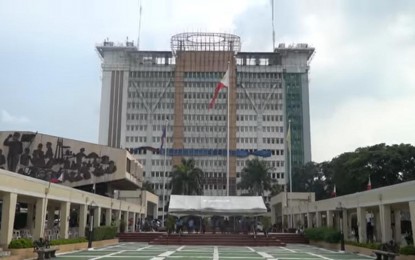
MANILA – As the Commission on Elections (Comelec) prepares for the May 9, 2022 national and local polls, the young voters of Quezon City may be interested to know that the first local election in the country’s erstwhile capital held 62 years ago or on Nov. 10, 1959 caught nationwide attention and interest.
At that time, elections in the country were being held every two years under the 1935 Constitution—with the national and local polls alternating on the second Tuesday of November. The election date was changed to the second Monday of May under the 1973 and 1987 Constitutions.
Before 1959, the mayor, vice mayor and councilors of Quezon City were appointed by the President. The last appointed and first elected top executive of the city was Mayor Norberto S. Amoranto, who held office for a record 22 years—from 1954 to 1976.
According to the book “History of Quezon City” by noted writer and author Celso Al. Carunungan, what was considered as interesting in the maiden election in QC was the sudden emergence of a group of concerned residents who organized the Quezon City Citizens League for Good Government (QCCLGG).
Carunungan wrote, “In August 1959, barely 80 days before the election, a handful of idealistic, civic-minded men joined forces in what was considered ‘political experiment’ to find out what concerned citizens could do to improve the lot of their city. “
They selected six truly distinguished men from a group of 40 to vie in the forthcoming polls for the then six-member city council. They were Conrado Benitez, former University of the Philippines dean and one of the seven drafters of the 1935 Constitution; former ambassador to the Vatican and Indonesia and later Senator Proceso Sebastian; former U President Vidal A. Tan; former Justice Secretary Pedro Tuazon; retired Navy Capt. Carlos Albert; and Dr. Victoriano Diamonon, considered as the Father of the Modern Barangay in the country.
There were 60 aspirants for the council seats then and as expected, the QCCLGG candidates were elected overwhelmingly and dubbed the “six wise men of the QC Council.”
In the election of Nov. 8, 1971, the last one before then President Ferdinand Marcos declared martial rule in September 1972, Albert ran and won as vice mayor to Amoranto. The present session hall of the QC legislature is called Albert Hall.
The conduct and results of that maiden election in the city, now considered as the largest in Metro Manila in terms of size and population, served as “inspiration” for the entire country.
For one thing, the Sunday Times Magazine of Dec. 13, 1959, said: “Certainly, the Quezon City experiment can easily be duplicated in other urban areas of the country. There are always honest men, tested by years of faithful public service, who will heed the people’s call for reforms. Will the Quezon City Citizens League for Good Government branch out into a full-blown political machine which will encompass the entire country? Will it be satisfied with having placed good men in the Quezon City Council?”
Background on the QC Council:
According to the QC Council official website, President Manuel L. Quezon named only three councilors for the newly created city in 1939 under Commonwealth Act No. 502.
On record, the first batch of City Council members appointed were Dr. Eusebio Aguilar, then Director of Health, who was concurrently City Health Officer; Jose Paez from the Engineering Division of the Capital City Planning Commission; and People’s Homesite Corporation (PHC) General Manager Alejandro Roces Sr.
For the following years, the number of the members of the City Council increased gradually, as per need of the likewise growing city. From the original three members in 1939, there were four councilors in 1947-1949; five in 1949-1950; then 11 in 1950-1953; increasing to 12 in 1954-1959, and back to eight in 1959-1963.
There would continue to be eight councilors for the Seventh, Eighth and Ninth Councils, before the QC Charter was revised once again to accommodate 16 members for the four districts (four for each district).
The number of city councilors increased gradually as per the need of the growing city. From the 11th City Council (1988-1992) until the18th Council (2010-2013), it was composed of the vice mayor/presiding officer, 24 councilors and two ex-officio members--the presidents of the Barangay Captains' League and the Sangguniang Kabataan (SK) Federation.
On March 22, 2011, the House of Representatives passed the reapportionment of the Second Legislative District (Novaliches area) of Quezon City to create two additional districts. The same was approved by the Senate on May 15, 2012. President Benigno S. Aquino III officially signed it into law on July 2, 2012, thereby dividing the Novaliches area into three districts. The first election for the reapportioned City Council was held in May 2013.
The present 21st City Council is composed of 36 elected councilors. It is presided by Vice Mayor Gian Sotto, son of Senate President Vicento C. Sotto III. (PNA)
